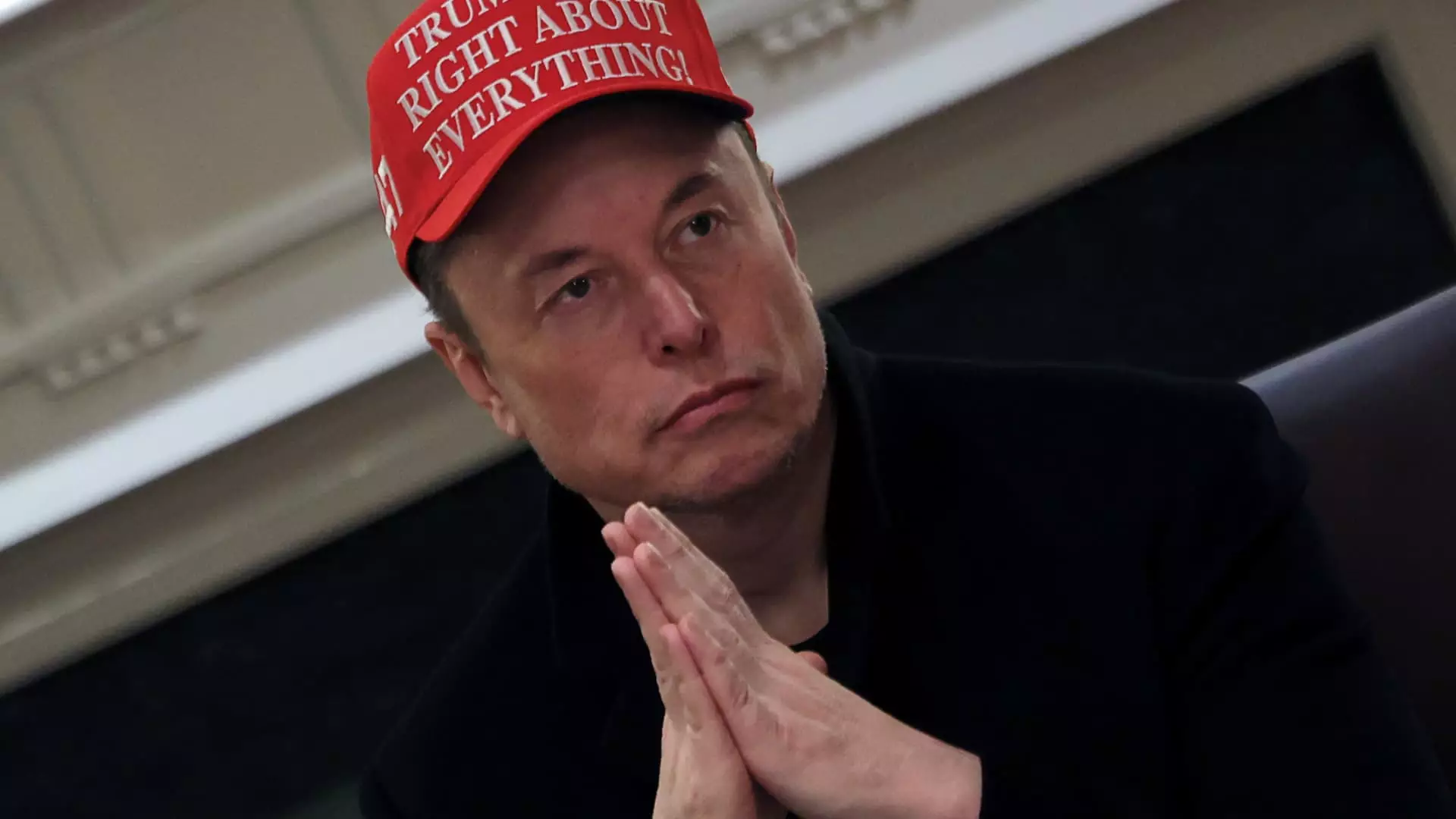Tesla Inc., once hailed as the pioneer of the electric vehicle (EV) revolution, is now experiencing a troubling downfall that raises significant questions for both the company and the burgeoning EV market. After witnessing a staggering 23% surge in shares just a day prior, investors were abruptly jolted into a reality check as the stock price plummeted by 7.3%, culminating at $252.40. This swing not only underscores the inherent volatility of Tesla’s stock but also reflects broader market dynamics heavily influenced by external political forces. The company’s stock is now 38% in the red for the year, marking it as the worst performer among major tech players, an unsettling scenario for a company that once dominated headlines for its innovative breakthroughs.
Political Winds Shaping Investor Sentiment
The tumult in Tesla’s stock price has been closely intertwined with the unpredictable nature of U.S. trade policies under President Trump. On Wednesday, Trump’s announcement of a 90-day pause on tariffs sent stocks soaring, igniting a frenzy of optimism among investors eager to see stability return to trade negotiations. However, the relief was short-lived when the ramifications of such policies were clarified, particularly concerning China, which now faces a staggering 145% tariff rate. As if orchestrated hand-in-hand, the European Union also laid down reciprocating tariffs that threaten further disruption for American corporations. Tesla, which relies heavily on imports for critical components, finds itself ensnared in this web of escalating tariffs as the market wavers under the weight of political uncertainty.
Analysts Growing Pessimism
The uncertainty has led well-respected financial institutions, including UBS, Goldman Sachs, and Mizuho, to revise their price targets for Tesla, indicating a significant dip in confidence. With UBS predicting a target price of $190 citing concerns for Tesla’s margins, it is evident that these analysts foresee a difficult uphill battle for the company in the near future. The reality is grim: Tesla is experiencing a dichotomy where booming sales growth is juxtaposed against brand deterioration and declining deliveries. In a landscape characterized by an influx of competition, the stakes have never been higher for the company.
The Impact of Unchecked Political Engagements
Moreover, it’s hard to ignore the implications of CEO Elon Musk’s close ties to the Trump administration, which may be causing fragmentation within Tesla’s brand. His controversial remarks against top advisors and his apparent defense of the administration’s hard stances on China may detract from the company’s progressive image. Musk’s widespread influence was pivotal in reinforcing the company’s standing, but any misstep can resonate unfavorably with the consumer base. Particularly in Europe, where political alignment can make or break public perception, his association with far-right parties raises questions about whether the image of Tesla is beginning to tarnish. Tesla needs to be more than a technological powerhouse; it must also embrace a forward-thinking and inclusive corporate identity.
Challenges Ahead in a Competitive Environment
As Tesla navigates through this storm, it faces down not only immediate financial pressures but also broader market realities. With new competitors entering the landscape, and established automakers ramping up their EV offerings, Tesla must not only improve its manufacturing efficiencies but also ensure that it addresses customer concerns regarding cost. The eurozone, for instance, presents challenges as retaliatory tariffs impose significant overheads on the manufacturing process.
As traditional automotive giants adopt advanced EV technologies, Tesla’s first-mover advantage may slowly erode. The race for consumer loyalty is tightening, making it imperative for Tesla to act decisively to reclaim its status as a market leader. The looming threats from geopolitical tensions and fluctuating market perceptions pose continuous risks for the company’s financial future.
Tesla’s current predicament serves as a harsh reminder that even visionary companies are not insulated from the multifaceted challenges of the modern economy. Who would have predicted the company once steering the electric vehicle narrative would now be grappling with both brand decline and political backlash? Only time will tell if Tesla can recover from this troubling chapter in its history or if the rising tide of electric vehicles will leave it adrift.

